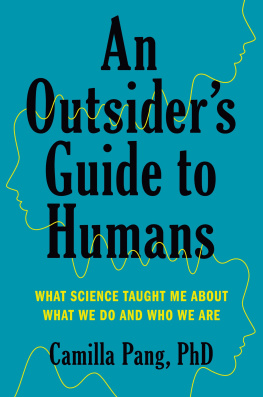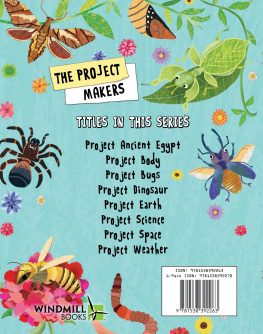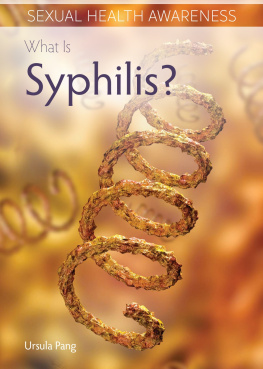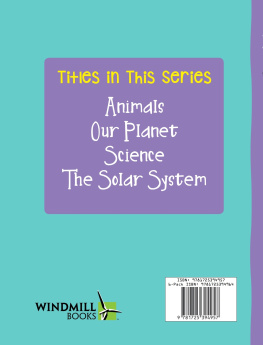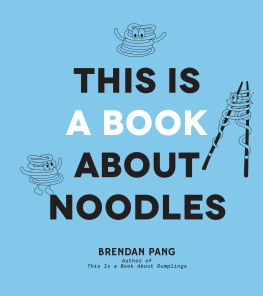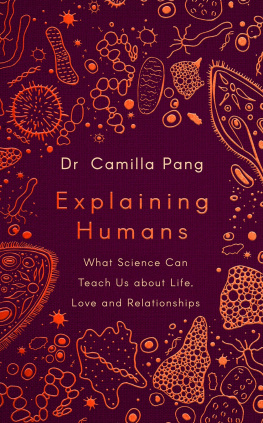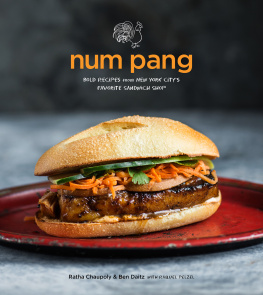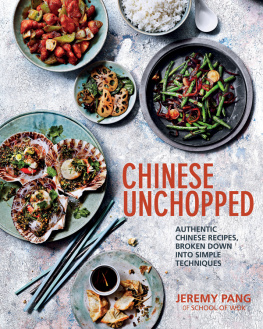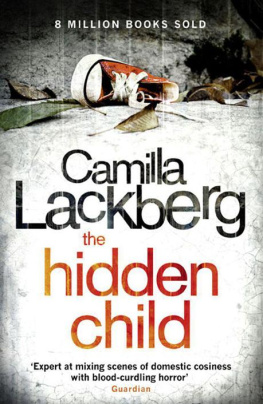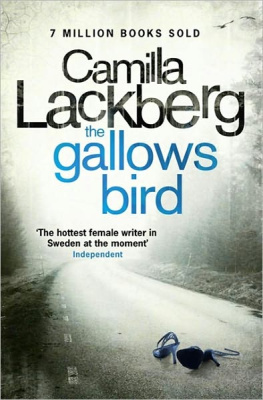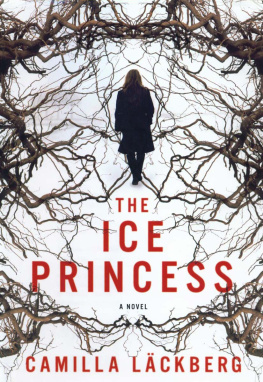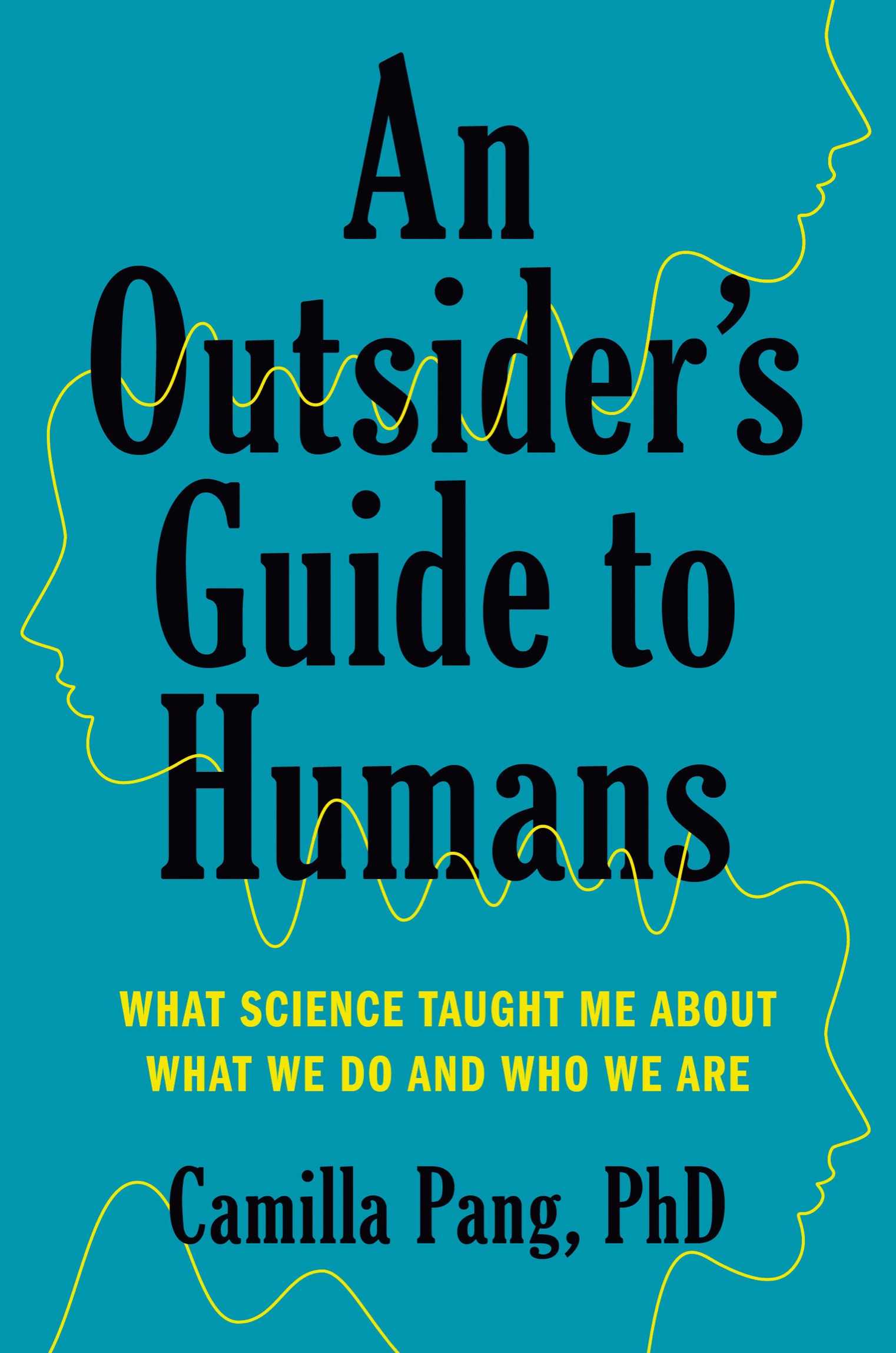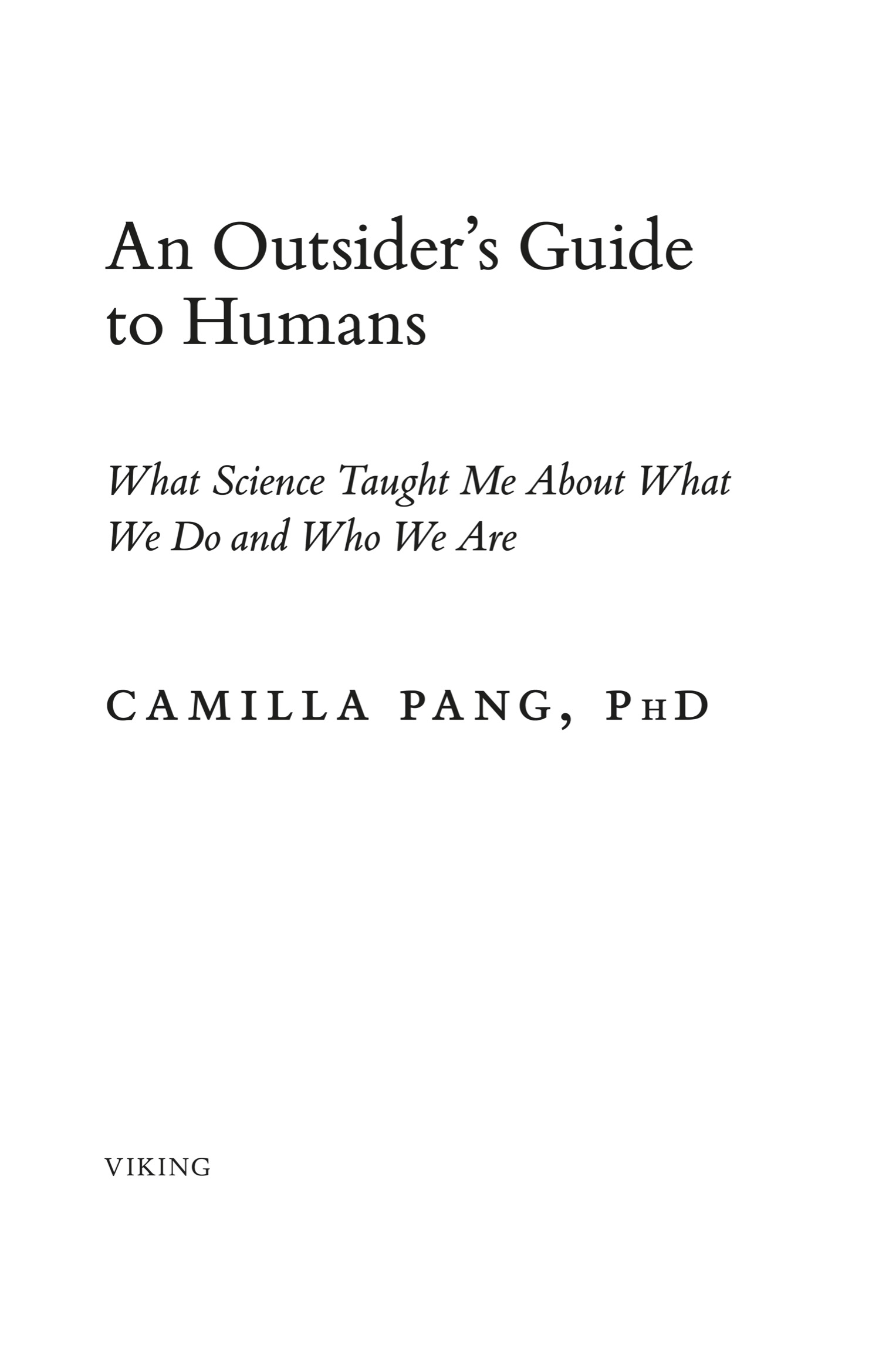First American edition published by Viking in 2020.
Copyright 2020 by Dr. Camilla Pang
Penguin supports copyright. Copyright fuels creativity, encourages diverse voices, promotes free speech, and creates a vibrant culture. Thank you for buying an authorized edition of this book and for complying with copyright laws by not reproducing, scanning, or distributing any part of it in any form without permission. You are supporting writers and allowing Penguin to continue to publish books for every reader.
Names: Pang, Camilla, author.
Title: An outsiders guide to humans : what science taught me about what we do and who we are /Camilla Pang, PhD.
Description: New York : Viking, 2020. | Includes index.
Identifiers: LCCN 2020027445 (print) | LCCN 2020027446 (ebook) | ISBN 9781984881632 (hardcover) | ISBN 9781984881649 (ebook)
Subjects: LCSH: Social norms. | Human behavior. | Manners and customs.
Introduction
It was five years into my life on Earth that I started to think Id landed in the wrong place. I must have missed the stop.
I felt like a stranger within my own species: someone who understood the words but couldnt speak the language; who shared an appearance with fellow humans but none of the essential characteristics.
In our garden at home I would sit in a multicoloured tent tilted sideways my spaceship with an atlas laid out in front of me, wondering what it would take to blast off back to my home planet.
And when that didnt work, I turned to one of the few people who maybe did understand me.
Mum, is there an instruction manual for humans?
She looked at me blankly.
You know... a guidebook, something that explains why people behave the way they do?
I cant be certain picking up on facial expressions was not, is not and never has been my forte but in that moment I think I saw my mothers heart break.
No, Millie.
It didnt make sense. There were books on almost everything else in the universe, but none that could tell me how to be; none that could prepare me for the world; none that could teach me to place a comforting arm around the shoulder of one in distress, to laugh when others laughed, to cry when others cried.
I knew I must have been put on this planet for a reason and, as the years passed and my awareness of my conditions developed and my interest in science grew, I realized it was this. I would write the manual that I had always needed one that explained humans to others like me who didnt understand, and which would help those who thought they understood to see things differently. The outsiders guide to life. This book.
It didnt always seem obvious, or achievable. Im someone who was reading Dr Seuss while revising for my A levels. Reading fiction actually makes me afraid. But what I lack in almost everything else, I make up for with the distinctiveness of how my brain works, and my overwhelming love for science.
Let me explain. The reason I never felt normal is because Im not. I have ASD (autism spectrum disorder), ADHD (attention deficit hyperactivity disorder) and GAD (generalized anxiety disorder). Together, these might combine to make life as a human impossible. Its often felt that way. Having autism can be like playing a computer game without the console, cooking a meal without pans or utensils, or playing music without the notes.
People with ASD have a harder time processing and understanding events on an everyday scale: often we have no filter in what we see or say, get easily overwhelmed, and can display idiosyncratic behaviours that mean our talents can be overlooked and ignored. Im someone who will tap the table in front of me a lot, make weird squeaking noises, and twitch constantly, nervous tics assailing me at random. Ill say the wrong things at the wrong time, laugh at the sad bits of films and ask constant questions through the important parts. And Im never far away from a total meltdown. To get an impression of how my mind works, think of the Wimbledon tennis final. The ball my mental state is being rallied back and forth, faster and faster. Its bouncing up and down, side to side, constantly in motion. Then, all of a sudden, theres a change. A player slips, makes an error or outwits their opponent. The ball spins out of control. A meltdown begins.
Living like this is frustrating, but also completely liberating. Being out of place also means you are in your own world one where you are free to make the rules. Whats more, over time I have come to realize that my curious cocktail of neurodiversity is also a blessing, one that has been my superpower in life equipping me with the mental tools for fast, efficient and thorough analysis of problems. ASD means I see the world differently, and without preconceptions; while anxiety and ADHD allow me to process information at rapid speed, as I pogo between boredom and intense concentration, and mentally envisage every possible outcome of each situation I find myself in. My neurodiversity created so many questions about what it meant to be human, but it also gave me the power to answer them.
Ive sought those answers through the one thing in life that gives me the greatest joy: science. Where humans are ambiguous, often contradictory and hard to understand, science is trustworthy and clear. It doesnt lie to you, mask its meaning or talk behind your back. At the age of seven, I fell in love with my uncles science books, a source of direct, concrete information I simply couldnt find elsewhere. Every Sunday I would go up to his study and immerse myself in them. It was like a pressure valve being released for the first time in my life I had found something to help explain the thing that confused me most: other humans. As someone who has constantly sought certainty in a world that often refuses to provide it, science has been my staunchest ally and most trusted friend.
And its provided the lens through which I now see the world, explaining many of the most mysterious aspects of human behaviour that I have encountered during my adventure on Planet Human. While science may seem abstruse and technical to many, it can also illuminate the most important things in our lives. Cancer cells can teach us more about effective collaboration than any team-building exercise; the proteins in our bodies offer a new perspective on human relationships and interaction; and machine learning can help us to make more organized decisions. Thermodynamics explains the struggle to create order in our lives; game theory provides a path through the maze of social etiquette; and evolution demonstrates why we have such strong differences in opinion. By understanding scientific principles, we can better understand our lives as they really are: the source of our fears, the basis of our relationships, the functioning of our memory, the cause of our disagreements, the instability of our feelings and the extent of our independence.

